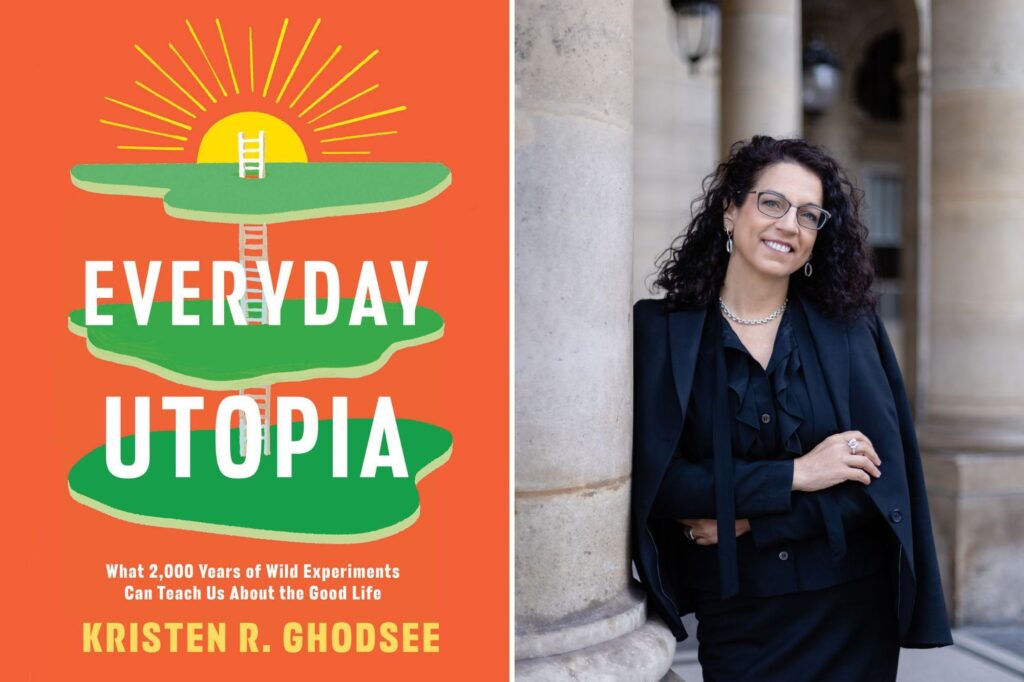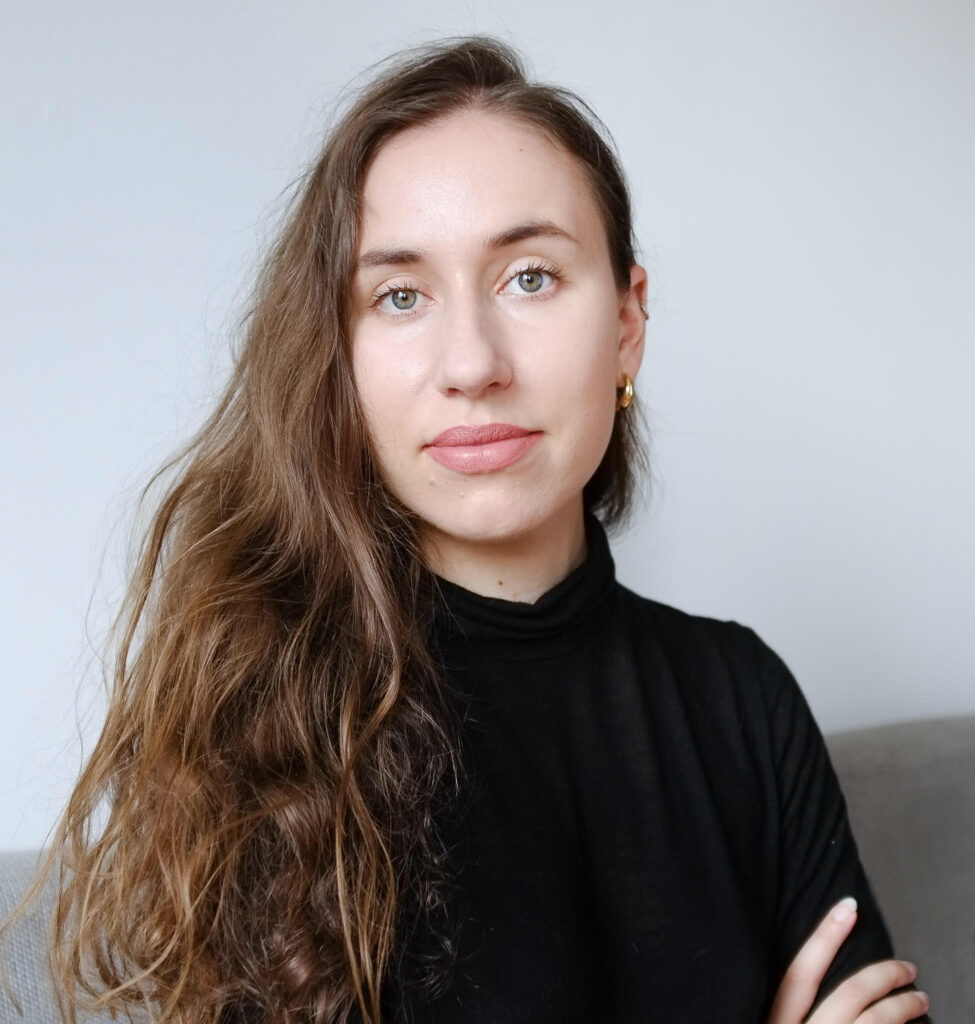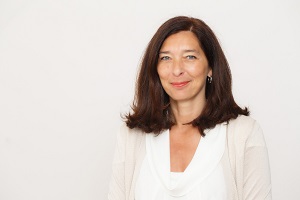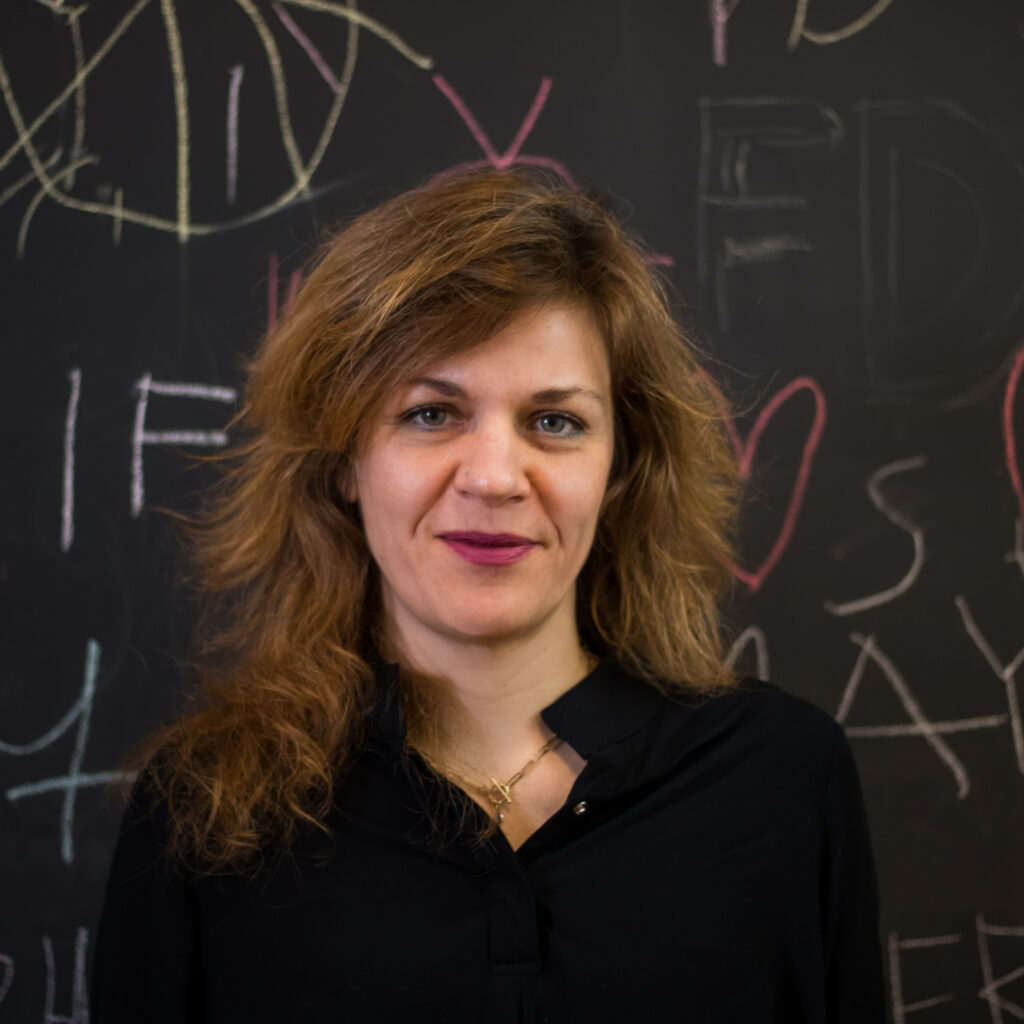In case you missed the event at Brooklyn College on Oct. 10, we have a recording available here.
Friday November 10
2pm to 3pm
(New York standard time)
Professor Ivan Simic, Charles University
This talk explores how Muslim men were targeted by a series of interventions aimed to change gender relations within Muslim communities. Yugoslav and Bulgarian communists were led by stereotypes about Muslim men, Muslim families, and Muslim communities, driven by socialist modernity notions. Heavily influenced by Soviet models from Central Asia, Yugoslav and Bulgarian communists aimed to create a homogenous and mobile population that would participate in the socialist project. Some policies that affected Muslim communities were universal for all, whilst some targeted Muslims explicitly. Namely, a series of interventions into Muslim communities started by introducing mandatory elementary education for girls, a ban on underage marriage, and the replacement of the Sharia law with the universal family law. Interventions continued with ban on circumcision, fez, and forced migrations. Muslim men were targeted and blamed for years for any failure of the communist modernising process, although interests of Muslim men were often fragmented – some eagerly supported new gender policies, some just wanted to be left in peace to their lives, and some found ways to resist the changes.
We ask that participants read the paper in advance. At the workshop, Prof. Simic will make a short presentation, after which participants will be invited to ask questions based on the paper and presentation. Registered participants will receive a draft of the paper.
Book launch: Cynthia Enloe’s Twelve Feminist Lessons of War (Footnote Press, 2023)
Moderator: Janet Elise Johnson, Endowed Chair in Women’s and Gender Studies, Brooklyn College
Co-hosted by Institute on Gender Law, and Transformative Peace Imitative, CUNY Law School
Monday, Oct. 30, 2023 | 2:15-3:30PM
Women’s Center | 227 Ingersoll Hall Extension
Brooklyn College, Brooklyn, New York
To attend in person, please RSVP. To attend online, please register here.

Twelve Feminist Lessons of War draws on firsthand experiences of war from women in places as diverse as Ukraine, Myanmar, Somalia, Vietnam, Rwanda, Algeria, Syria, and Northern Ireland to show how women’s wars are not men’s wars. Professor Enloe demonstrates how patriarchy and militarism have embedded themselves in our institutions and our personal lives. As the book is dedicated to Ukrainian feminists and includes a chapter on the lessons Ukrainian feminist have to teach us, there will be a particular focus on Russia’ s war in Ukraine in the conversation.
Cynthia Enloe is Research Professor at Clark University and author of fifteen books, including Bananas, Beaches and Bases: Making Feminist Sense of International Politics. In 2018, Enloe’s name was installed on the Gender Justice Legacy Wall at the International Criminal Court in The Hague.
Janet Elise Johnson is Professor in Political Science at Brooklyn College and the CUNY Graduate Center. Her most recent book, The Routledge Handbook of Gender in Central-Eastern Europe and Eurasia (co-edited with Katalin Fábián and Mara Lazda, 2022), won the Heldt prize for the best book from the Association for Women in Slavic Studies.
Book launch of Everyday Utopia: What 2,000 Years of Wild Experiments Can Teach Us About the Good Life (2023 Simon & Schuster) by Kristen Ghodsee and conversation with Liza Featherstone
Tuesday, October 10, 2023 | 2:15-3:30PM
Brooklyn College Library | Woody Tanger Auditorium
Brooklyn College, Brooklyn, NY
also streaming via Zoom: registration link

Everyday Utopia whisks you away on a tour through history and around the world to explore those places that have boldly dared to reimagine how we might live our daily lives: from the Danish cohousing communities that share chores and deepen neighborly bonds to matriarchal Colombian ecovillages where residents grow all their own food; and from Connecticut, where new laws make it easier for extra “alloparents” to help raise children not their own, to China, where planned microdistricts ensure everything a busy household might need is nearby. It offers a radically hopeful vision for how to build more contented and connected societies. In this conversation, we will focus on feminist utopian visions of love and care, including on the radical imagining of St. Petersburg-born (and half Ukrainian) Alexandra Kollantai.
Kristen R. Ghodsee is a Professor of Russian and East European Studies at the University of Pennsylvania and the critically acclaimed author of Why Women Have Better Sex Under Socialism: And Other Arguments for Economic Independence, which has been translated into fourteen languages. Her writing has been published in The New York Times, The Washington Post, The New Republic, Le Monde Diplomatique, and Jacobin, among other outlets, and she’s appeared on PBS NewsHour and France 24 as well as on dozens of podcasts, including NPR’s Throughline and New York magazine’s The Cut. She lives outside of Philadelphia.
Liza Featherstone is a columnist at Jacobin and The New Republic, as well as a contributing writer at The Nation. Featherstone’s work has also been published in Lux, TV Guide, The New York Times, The Washington Post, Ms., The American Prospect, Columbia Journalism Review, Glamour, Teen Vogue, Dissent, The Guardian, In These Times, Newsday and many other publications. Featherstone is the author of Divining Desire: Focus Groups and the Culture of Consultation, published by O/R Books in 2018, and Selling Women Short: The Landmark Battle for Workers’ Rights at Wal-Mart (Basic Books, 2004), among other books. She teaches journalism and opinion writing at NYU and Columbia, respectively. From 2013 to 2015, she was the Belle Zeller Visiting Professor at Brooklyn College. Featherstone is a member of New York City Democratic Socialists of America (DSA).
Fall Schedule 2023
We continue to meet on Fridays from 2pm to 3pm (New York time), with some Zoom and some hybrid sessions.
We are excited to add several special sessions, co-hosted with the Endowed Chairship in Women’s and Gender Studies, Brooklyn College, CUNY.
Sept. 8, 2023, 2-3PM: Zoom
Bénédicte Santoire (University of Ottawa)
Women, Peace and Security Agenda in Long-term Protracted Conflicts: Exploring the Cases of Moldova and Georgia
Santoire Zoom registration link
Tuesday , Oct. 10, 2:15-3:30PM: Hybrid: Brooklyn College and Zoom.
Kristen Ghodsee (University of Pennsylvania) in conversation with
journalist Liza Featherstone
on Everyday Utopia, “You and Me and Baby Makes Misery: Expanding Our Networks of Love and Care,” and Alexandra Kollontai
Woody Tanger Auditorium, Brooklyn College Library
Ghodsee and Featherstone Zoom registration link.
Co-hosted with the Endowed Chair in Women’s and Gender Studies, Brooklyn College, Janet Elise Johnson
Monday, Oct. 30, 2:15-4:45PM : In-person at Women’s Center, Brooklyn College, CUNY
Cynthia Enloe (Clark University),
Book Launch:
Twelve Feminist Lessons of War ,
in coordination the new Institute on Gender, Law, and Transformative Peace at CUNY Law
Brooklyn College Women’s Center
Enloe Zoom link: https://us02web.zoom.us/meeting/register/tZ0sc-qrpjgrGNEsuaOm7n3aSStb5fTtakJy
Friday, Nov. 10th 2pm to 3pm: Zoom
Ivan Simic, Charles University, Prague
Gender Policies Towards Muslim Men in Socialist Yugoslavia and Bulgaria
Simic Zoom registration link
Friday, Dec. 8 12:30-2: In person and via zoom
(special CUNY REEES Workshop)
Nicholas Boston (Lehman College, CUNY) presents new research on “The Amorous Migrant: Polish Gay Men in the United Kingdom, 2004-2020“.
CUNY Graduate Center (room 5203, Ralph Bunche Institute), with reception to follow. Registration link for Zoom
Please join us Friday, September 8, 2pm to 3pm (NY Time) when we welcome:
Bénédicte Santoire, University of Ottawa

Women, Peace and Security Agenda in Long-term Protracted Conflicts: Exploring the Cases of Moldova and Georgia
Bénédicte Santoire is a PhD Candidate and Lecturer in International Relations at the University of Ottawa, Canada. She researches and teaches in the areas of feminist international relations theories and feminist security studies. Her doctoral thesis focuses on the implementation of the Women, Peace and Security (WPS) agenda in the post-Soviet space, more specifically in Ukraine, Moldova, Georgia, and Armenia.
This meeting will take place on Zoom. Register here
We ask that registered participants read the paper in advance. At the workshop, Santoire will provide a brief (20 min) presentation, after which attendees are invited to share questions and suggestions based on the presentation and paper. The paper will provided one week in advance.
Call for Papers 2023-24
online and in-person
due Aug. 7, 2023
We’re celebrating three decades! Founded in 1993, amidst the conflicts in Yugoslavia, this workshop is driven by the exploration of questions related to gender in postcommunist countries of East, South and Central Europe and the former Soviet Union, including the Baltic countries and Central Asia. Centered on debates on communism’s impact on women and gender and on how to converse and theorize across the East-West divide, this workshop strives to include voices from not just the New York City area, but also from the region and around the world. We continue to be an informal and friendly gathering for feminist scholars, activists, and journalists to discuss recent theoretical and/or critical work, empirical research, and critical and scholarly reflections on activism.
Theme: We invite papers on any topic related to these themes, but it is hard not to keep thinking about the impact of Russia’s long war against Ukraine. We remain especially interested in proposals that consider the impact of Russia’s aggression on gender in the region, state gendered violence inside and outside the state borders, and the role of state propaganda in fostering ultranationalism and war. The war has led scholars of the region to reflect on their own work, prompting many questions on the continued influence of Russia-centrism in scholarship. Academics and non-academics alike have reevaluated the relationship between scholarship and activism–at this time of war, is all scholarship political? The war has also caused us to revisit debates about collaboration between scholars from the region and scholars in the so-called “West,” revealing both cooperation and missed opportunities.
We also hope to have one in-person session to foster mentoring and collaboration among those who are local.
Details:
- Meet monthly on Fridays, at the CUNY Grad Center in New York City (with Zoom participation available) or via Zoom only, 2-3 PM New York time (8-9PM Poland time)
- Presenters share a 10-15 page paper in advance to those who have registered. We ask authors to limit their presentation to 20 minutes to allow maximum time for conversation.
- We will moderate the sessions so that we check in with what we are all thinking about, hear and see the key ideas of the paper, and have lots of time to discuss collaboratively.
To participate, please fill out this google form with your name, email, location/affiliation, current related interests. We have also created a space there for you to share your thoughts and suggestions about the workshop as well as to indicate interest in participating in a NYC-based networking session.
If you’d like to present your work/project this year, please also add the following:
- tentative title for your talk
- abstract of less than 200 words describing your proposed talk
- up to 5 recent publications or information about your activism
- your schedule clarifying which Fridays you could present
- Preferred format: Zoom or in-person
We regret that, despite our best efforts, we do not have funds for an honorarium. All are welcome to participate. We will start reviewing proposals on Aug. 7, 2023.
Join us Friday, May 12, 2pm to 3pm (New York time)
in person and online when we welcome
Aleksandra Kanjuo Mrčela
professor at the Department of Sociology of Faculty of Social Sciences, University of Ljubljana, on:
“Which invisible hand makes Slovene women earn less than men?”

This presentation is based on a longer project co-authored with Alena Křížková, Andreja Poje, and Andrew Penner.
The transition to the full flagged market economy didn’t bring the best results for the highly educated and experienced female labor force in Slovenia. On the contrary, from 2010 to 2018 the gender pay gap rose from 0,9 to 9,3 %. The contribution seeks to understand the impact of intertwining structural and individual factors on the economic situation of women and men in a small, transitional, globally embedded economy. The paper is based on data that show negative trends, especially in terms of increasing differences in wages of women and men. In the analysis, in addition to theoretical discussions on the position of women and men on the labor market, we analyze the results of a survey conducted in 2016 (in time of the rising gender pay gap) on a representative national sample and some recent smaller research endeavors that gave us insight in the placement of women and men in different organizational/sectoral environments, as well as in the individual strategies of men and women in the labor market. We analyzed experiences of workers regarding working conditions, employment, wage and promotion as well as opinions and experiences of employers regarding the recruitment, promotion and rewarding of female and male workers.
We ask that participants read the paper in advance. After a short presentation, we will invite participants to discuss.
In-person attendees: Register & receive paper here
On-line attendees: Register & receive paper here
In-person location:
European Union Studies Center
CUNY Graduate Center
365 Fifth Avenue
Room 5203
Questions? Workshop co-coordinators
Mara Lazda ([email protected]) and Janet Johnson ([email protected])
Join us for our April 21 meeting at 2pm to 3pm (New York time) on Zoom, when we welcome Adriana Zaharijević, Senior Research Fellow at the Institute for Philosophy and Social Theory, University of Belgrade.

In this presentation, Zaharijević examines a myth within East/West feminist venues. By addressing it, she tackles several issues that are marring feminist scholarship and also feminist public life. The first will refer to hierarchies within feminist postsocialist scholarship, the second to the incompatibility of myth to different feminist realities, and the third to the entrenching of divisions within feminisms, this time thriving on recognition/redistribution, economy/culture, class/gender divides.
We ask that participants read the author’s short paper in advance. Zaharijević will give a short presentation at the workshop, and then participants will be invited to share their comments and suggestions.
Please email [email protected] for the paper.
Register for Zoom link here: https://us02web.zoom.us/meeting/register/tZAtce-qrDotHND52CDOruKwi7SpF0MMSY5U
Questions: Mara Lazda ([email protected]) or Janet E. Johnson ([email protected])
Mar 17 (online): 2-3PM EDT
Note that that US moved one hour ahead to Daylight Savings Time this last weekend whereas Europe and other places change time later.
“Strong family makes strong Russia:” Maternity and “traditional values” in a militarizing state
Yulia Gradskova, Center for Baltic and East European Studies, Södertörn University, Sweden
The presentation is dealing with the implications that the ideas and politics of “traditional values” and “familism” in Russia have for interpretations of maternity in the context of militarization of the country and growth of its imperial and nationalist ambitions (early 2010-2022). While the preoccupation with the falling birth rate and “crises of family” was in the center of the public discussions in Russia already in the period of the late socialism and perestroika, it was in 2010s when the state-manipulated “civic organizations” started systematical educational, legal and cultural activities aimed for promoting families with several children, restricting reproductive rights and fostering “patriotic” upbringing of children. The presentation analyses ideas on “good mothers” expressed through activities of very different participants of this campaign: pro-life and homeschooling organizations, Christian Orthodox psychologists and state-associated women’s organizations like Women’ Union of Russia and Union of Women’s Forces. Following N.Yuval Davis (1997) criticism of the historical construction of women as responsible for the reproduction of the collective identities and the nation itself, I explore how different actors behind the traditionalist discourses on maternity and family became mobilized for serving the Russian aggressive war on Ukraine. The presentation is a part of the project “Maternity in the time of ‘traditional values’ and femonationalism” supported by the Baltic Sea Foundation.
We ask that workshop attendees read the paper in advance. Please email [email protected] for the paper.
Updated registration link: https://us02web.zoom.us

